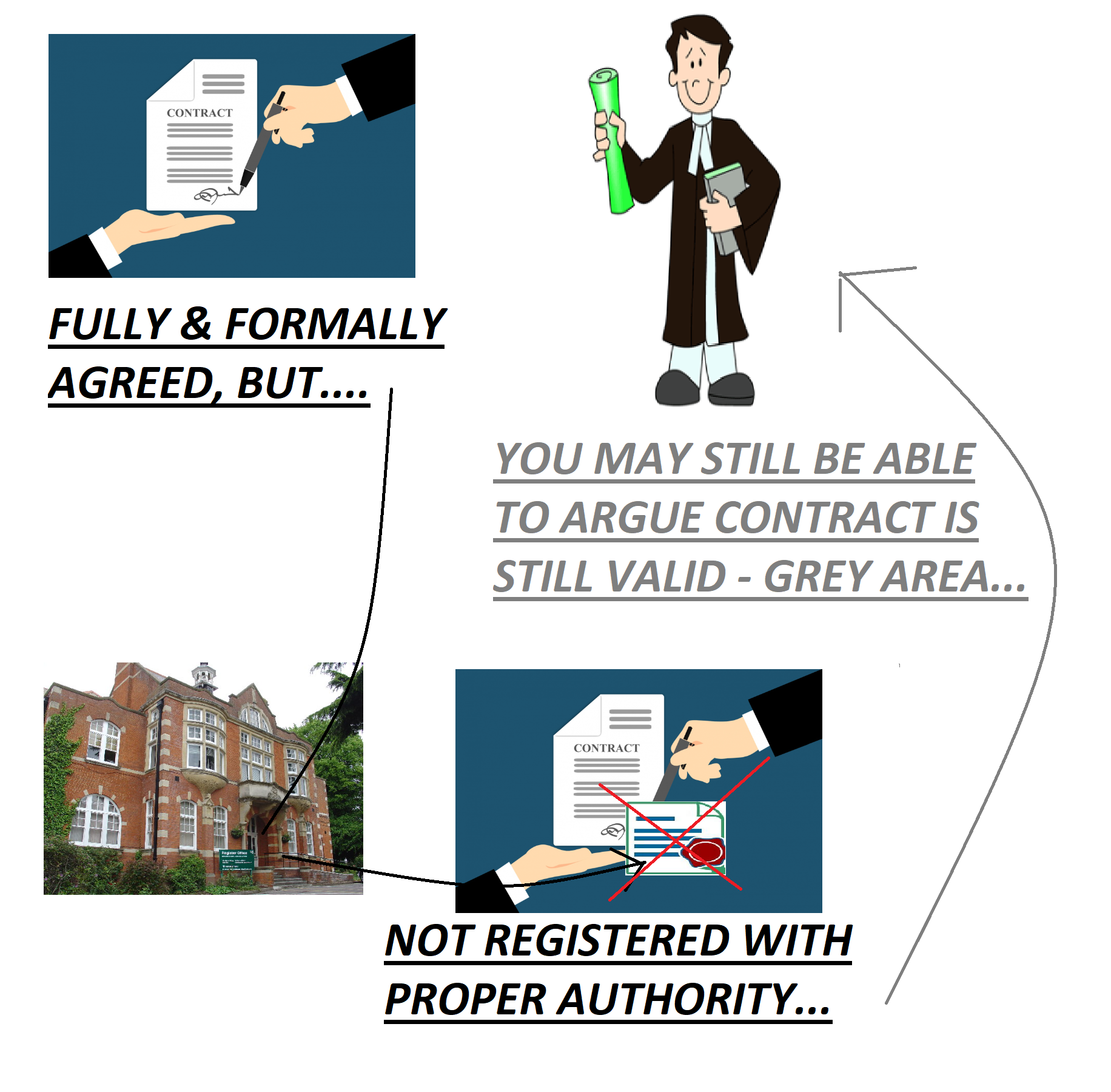Sharp v Thomson 1997 SC HL 66
Citation:Sharp v Thomson 1997 SC HL 66
Rule of thumb 1:IF all the contracts have been signed properly in a transaction, but it is just not registered properly, can this contract still be backdated to the time when it was actually agreed? Yes, where a contract is all agreed, but not registered properly to make it formal by human error, the contract is still formed legally.
Rule of thumb 2:Can Judgments from English Courts be relied upon in England? Yes, is the general answer, and the answer will only be no in exceptional circumstances. Scottish and English contract law are presumed to be the same, and a Judge will have to be persuaded that there are economic justifications to make one different from the other one otherwise the default position that they are the same must be applied.
Background facts:
The basic facts were that Thomson bought a flat from a company called Albyn construction Ltd – all the money was exchanged, all the deeds were signed, Albyn could not turn back at that point, and all that had to happen was that the deeds had to be formally registered in the land register. However, before the deeds were officially registered in the land register, Albyn went bust, and the bank who they owed money to had a floating charge stating that in the event Albyn went bust all Albyn’s property became theirs & they could appoint a receiver to immediately go in and take over the company.
Parties argued:
Sharp was the receiver and argued that the sale was not finished and so Thomson was not the owner – Sharp was refusing to send the signed documentation to the land register.
Judgment:
The Court held that as all the paperwork had been fully completed, and Albyn had lost control & beneficial interest in their property at that point, they were no longer the owner and Thomson was the owner. Thomson was declared to be the owner of the house by the Court and not the receiver/bank. In short, when all deeds are formally signed and completed with no turning back & a loss of beneficial interest, the actual formal registering of them in the property register is not actually of great importance legally.
This is a seminal case on jurisprudence in contract law. English and Scottish cases are interchangeable as authorities as a general rule of thumb and cases from each jurisdiction can readily and seamlessly be submitted as authorities in making legal submissions each jurisdiction – the Court relied on some English case-law in arriving at this decision and very old traditional Scots law principles were not followed – if there is a contrast between an old Scots law principle and modern, well-reasoned English case-law then the English case-law should prevail as the source for the Judge to apply.

Ratio-decidendi:
''
Warning: This is not professional legal advice. This is not professional legal education advice. Please obtain professional guidance before embarking on any legal course of action. This is just an interpretation of a Judgment by persons of legal insight & varying levels of legal specialism, experience & expertise. Please read the Judgment yourself and form your own interpretation of it with professional assistance.

